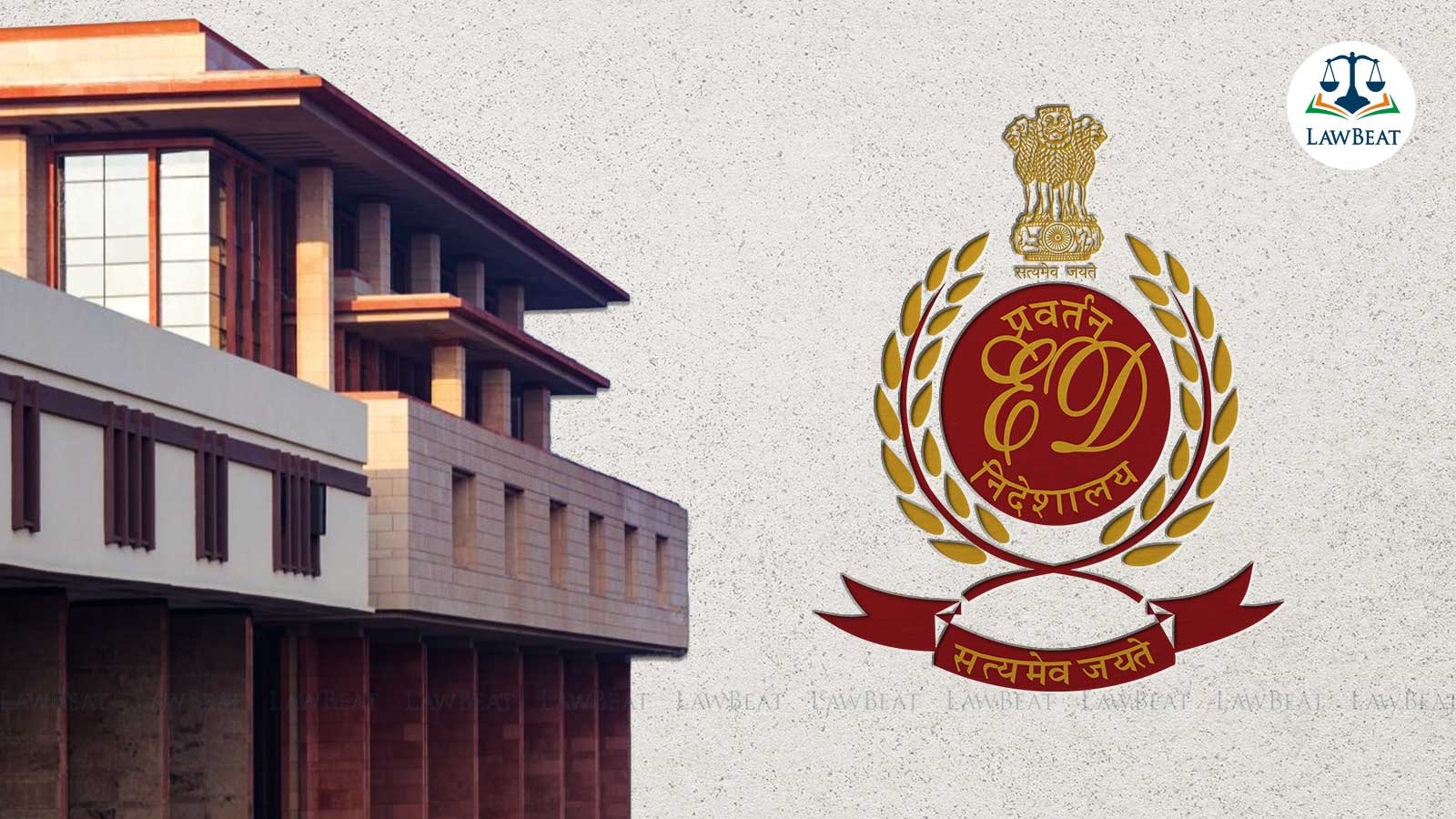Delhi HC Grants Bail To School Teacher Allegedly Impersonating An ED Officer

Court opined that merely receiving funds from one of the accused individuals does not automatically meet the criteria of those funds being ‘proceeds of crime,’ nor does it imply that the accused was aware of such a possibility
The Delhi High Court recently granted bail to a school teacher accused of impersonating an Enforcement Directorate (ED) officer, deceiving the informant, and extracting Rs. 2.60 crores. The bench of Justice Manoj Kumar Ohri noted a lack of substantial evidence linking accused Dinesh Singh Kushwaha to the scheduled offence.
The case centered around an FIR filed against an unknown individual for alleged offences of cheating and fraud against the public amounting to approximately Rs. 250-300 crores. Preliminary investigations revealed the siphoning of significant public funds through Apps such as ‘Power Bank App’, ‘Tesla Power Bank App’, and ‘Ezplan App’, enticing people with promises of doubling their deposits in a short time. Further investigation revealed that Saurin Shah, an accused, claimed that Dinesh Singh Kushwaha (Applicant), posed as an ED Officer and assured assistance in releasing his seized mobile phone and securing relief in the case, leading to a payment of Rs. 2.60 crores.
Kushwaha, represented by Advocate Anant Malik, contended that he had been in custody since February 25, 2023, while all other accused had been released on bail. He further argued that out of the alleged payment of Rs. 2.60 crores, only Rs. 9 lacs were traced to him, whereas larger sums were recovered from the co-accused and their family members' accounts.
Whereas Special Counsel Zoheb Hossain opposed bail citing Kushwaha’s involvement in multi-layered proceeds of crime. He contended that Kushwaha was an active participant in the crime evident from his WhatsApp chats with co-accused Jitendra Prasad, and the use of forged letters from the Directorate.
Court, while examining the aforementioned provision, particularly clause (ii) of Section 45(1), opined that before bail is granted in cases related to the Prevention of Money Laundering Act (PMLA), certain 'twin conditions' must be satisfied i.e. “he is not guilty of such offence” and “he is unlikely to commit any offence when on bail”.
The bench further reiterated that “at the stage of consideration of bail application, the Court is not required to hold a mini trial or arrive at a conclusion that the applicant is guilty of offence or not. The court only has to form a prima facie opinion as to the involvement of the accused in the alleged offence. Admissibility and relevancy of material placed on record is something which has to be valued at the stage of evidence”.
The bench noted the allegations that the scheduled offense involved a complex money transfer scheme where significant amounts of money were deposited into the bank accounts of M/s Diyabati Technology Pvt. Ltd., M/s Maojaza Technologies Pvt. Ltd., and M/s Sumyth Technologies Pvt. Ltd. (first-layer entities). These funds were then transferred to various other bank accounts, including those of M/s Akash Corporation and M/s Haresh Corporation (second-layer entities). Subsequently, the funds were further moved to M/s Sagar Diamonds Ltd. (third-layer entity), which then channeled the money into its own SBI bank account for outward remittance purposes, disguising it as imports or transferring it to the bank account of M/s RHC Global Exports Pvt. Ltd. (fourth-layer entity).
However, the court observed, “The applicant is not found involved in any of the above- mentioned layers and is therefore, not an accused in the scheduled offence. Rather he has been accused of impersonating himself to be an ED Officer and approaching one of the accused persons to help him in ED case, and in lieu of the same an amount of Rs. 9 lacs has been received, which has also been traced in his account”.
Court held, “So far as the issue of the applicant being aware that the amount paid is from the ‘proceeds of crimes’, is concerned, I am of the considered prima facie opinion that at the present stage, considering the evidence and factual situation as existing, the said fact is not clearly established”.
The bench concerning the scheduled offence itself, opined that the mere transferring of money from one layer to another did not automatically imply that the subsequent layer was aware that the money constituted proceeds of crime.
The bench emphasized that establishing awareness of the money being proceeds of crime within the various layers requires specific connecting evidence, and mere allegations are insufficient grounds for confirmation.
Therefore, court allowed the application and granted bail.
Case Title: Dinesh Singh Kushwaha v Directorate Of Enforcement (BAIL APPLN. 2234/2023)
